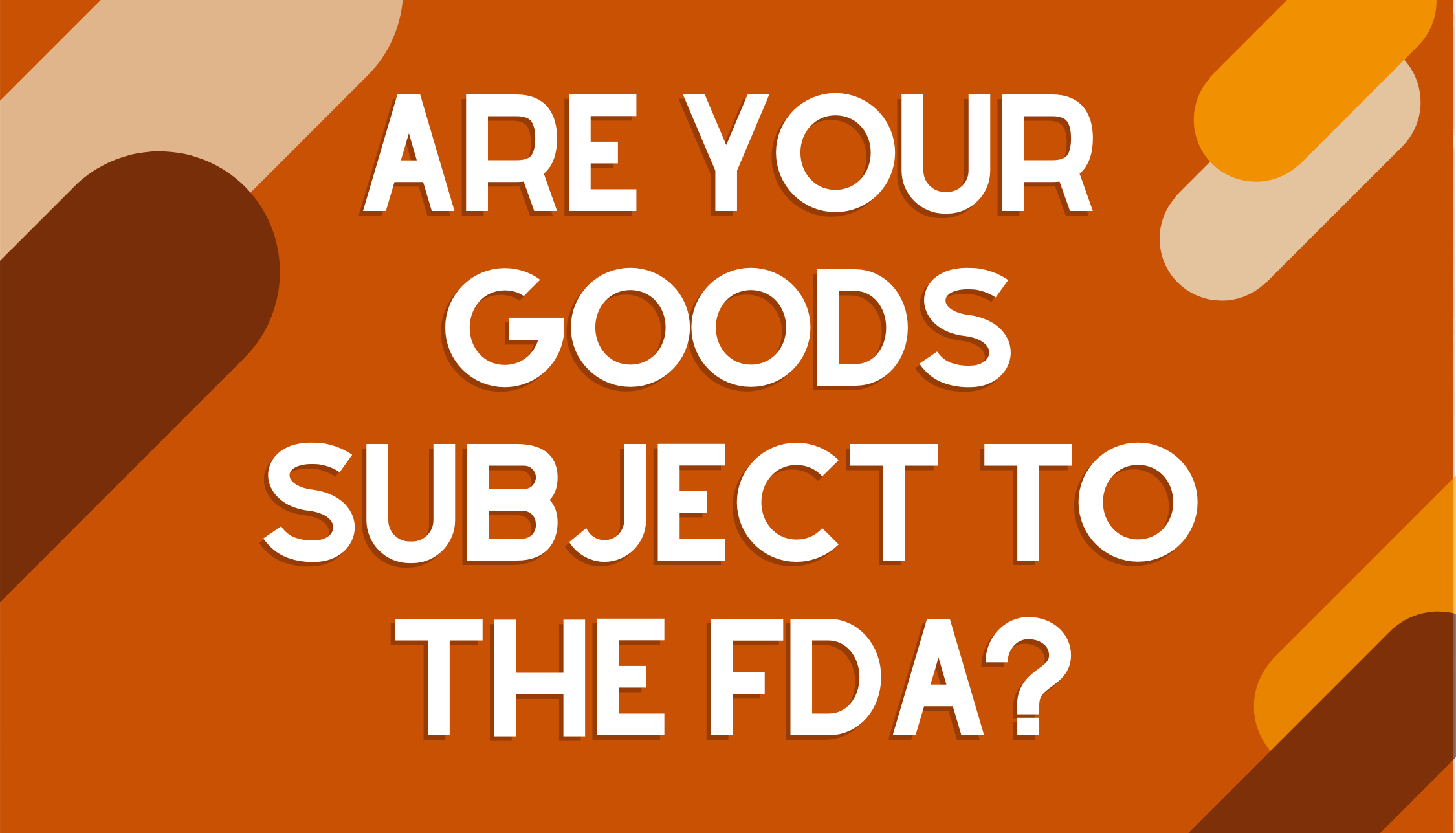The FDA is responsible for ensuring that domestic and imported goods are safe for consumers before reaching the marketplace.
What is the FDA?
The Food and Drug Administration (FDA) is a federal agency within the United States Department of Health and Human Services agency. They are responsible for protecting public health by ensuring the safety, efficacy, and security of human and veterinary drugs, biological products, and medical devices. They also ensure the safety of our nation’s food supply, cosmetics, and products that emit radiation.
What Products are Subject to FDA Regulations?
In the most basic terms, the Food and Drug Administration regulates anything placed in or on the body. Products regulated by the FDA include:
- Human foods, including dietary supplements and color additives
- Human drugs
- Vaccines, blood, and biologics
- Medical devices
- Radiation-emitting electronic products
- Cosmetics
- Animal & veterinary food and medicines
- Tobacco products
Import Process for FDA Products
To determine if your commodity is subject to FDA, check the HTS commodity code for an FDA flag. The four types of FDA flags are:
- FD1, meaning the product may or may not be regulated by the FDA depending on its use.
- FD2, meaning it is regulated by the FDA but is not food.
- FD3, meaning it may or may not be a food product depending on its use.
- FD4, meaning it is explicitly a food product.
If your commodity is subject to FDA regulations, you will need to provide the following information to U.S. Customs and Border Protection (CBP) when filing for entry. All entries are first submitted to CBP, who will then refer all entries of FDA-regulated products to the FDA for review and examination.
- Commodity and subtype
- Product code
- Product description
- Country code identifying where the product was produced, sourced, or harvested
- Names and addresses of the manufacturer, shipper, and importer
- Contact information
- Estimated arrival date and time
- Affirmation of Compliance
- Quantity and value of goods
Certain products may require additional or less information than others, so it is essential to use the Food and Drug Administration’s supplemental guides for further instructions. For example, many FDA products require prior notice that is non-negotiable to make entry. When prior notice is required, it is because the FDA needs time to determine if the commodities need further inspection upon arrival.
When the Food and Drug Administration receives your entry information, it is electronically screened to assess risk. High-risk products and entry submissions with incomplete or inaccurate information are flagged for manual review to determine the admissibility of the product.
After the review process, the FDA will release your product to be distributed into U.S. commerce, request additional information, or request detention of the product. They will request additional information if the information in the electronic entry is not sufficient to make an admissibility decision. They will review shipping and entry documents and sometimes examine or collect samples of the product for further analysis to determine admissibility. Suppose the FDA requests detention of your product. In that case, it could be due to the product or manufacturer being subject to detention without a physical examination or because compliance with particular requirements cannot be verified.
FDA goods are denied entry if they seem to be or have been discovered to be contaminated, meaning the goods:
- Are unsafe
- Are unauthorized
- Do not meet acceptable standards
- Have improperly marked labels containing inaccurate or misleading information
- Are not registered and listed
- Are forbidden and restricted from sale
Importers have two options if an entry is denied:
- Destroy the product under FDA and CBP supervision
- Export the product under FDA and CBP supervision
This must occur within 90 days of the refusal notice. If the importer fails to do so, CBP may assess liquidated damages against their Customs bond.
For more information on the import process, read through the Food and Drug Administration’s Import Basics.







![[Webinar] How Could Changes to De Minimis Impact Your Company?](https://traderiskguaranty.com/trgpeak/wp-content/uploads/2025/05/trg-how-de-minimis-impacts-customs-bond-webinar-400x250.png)